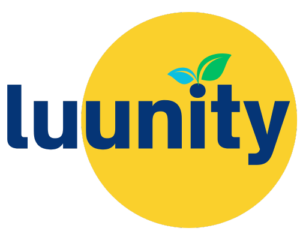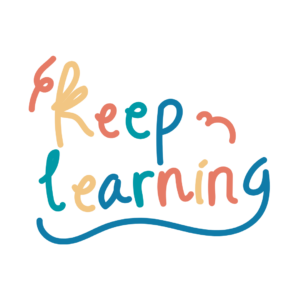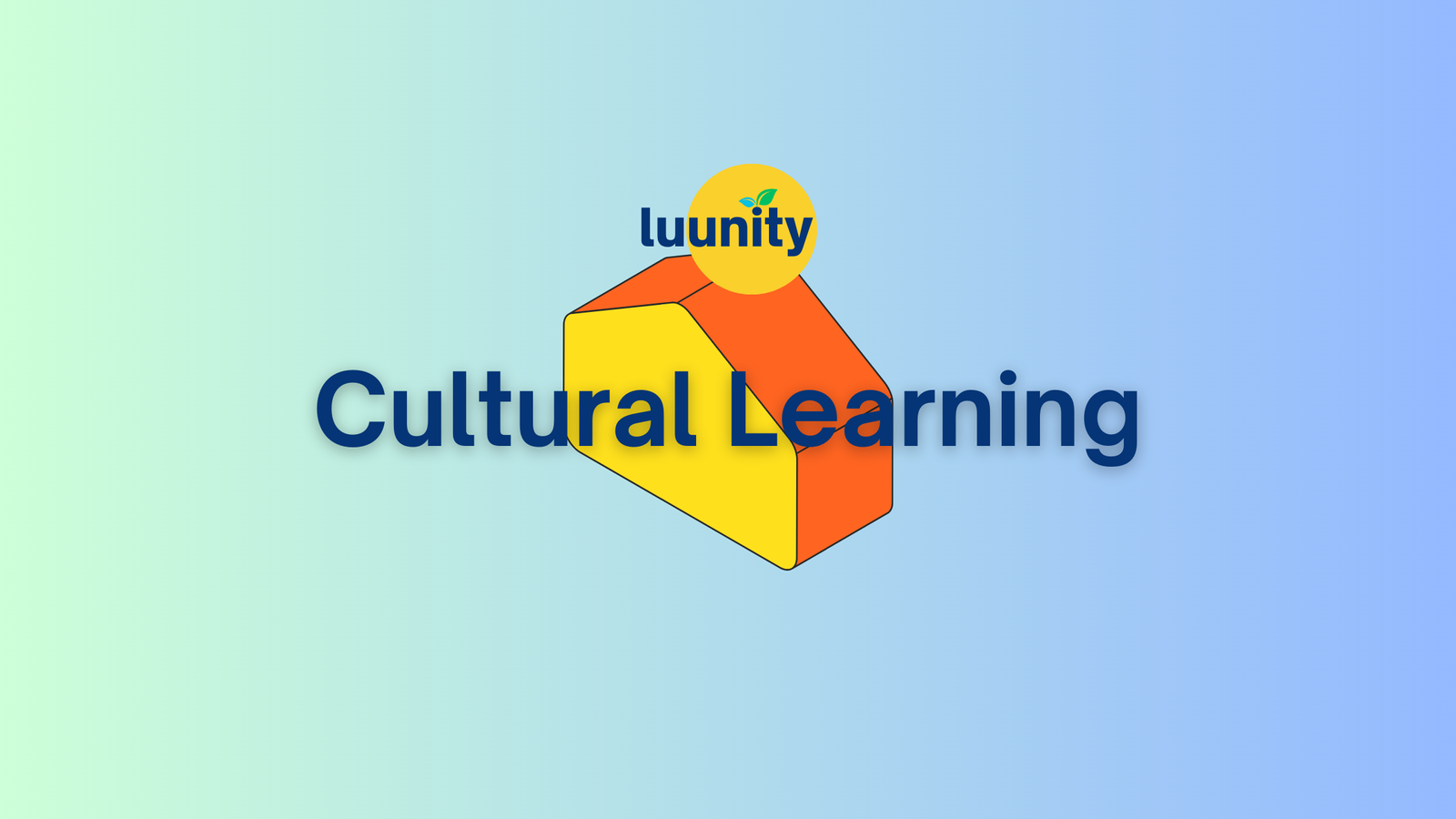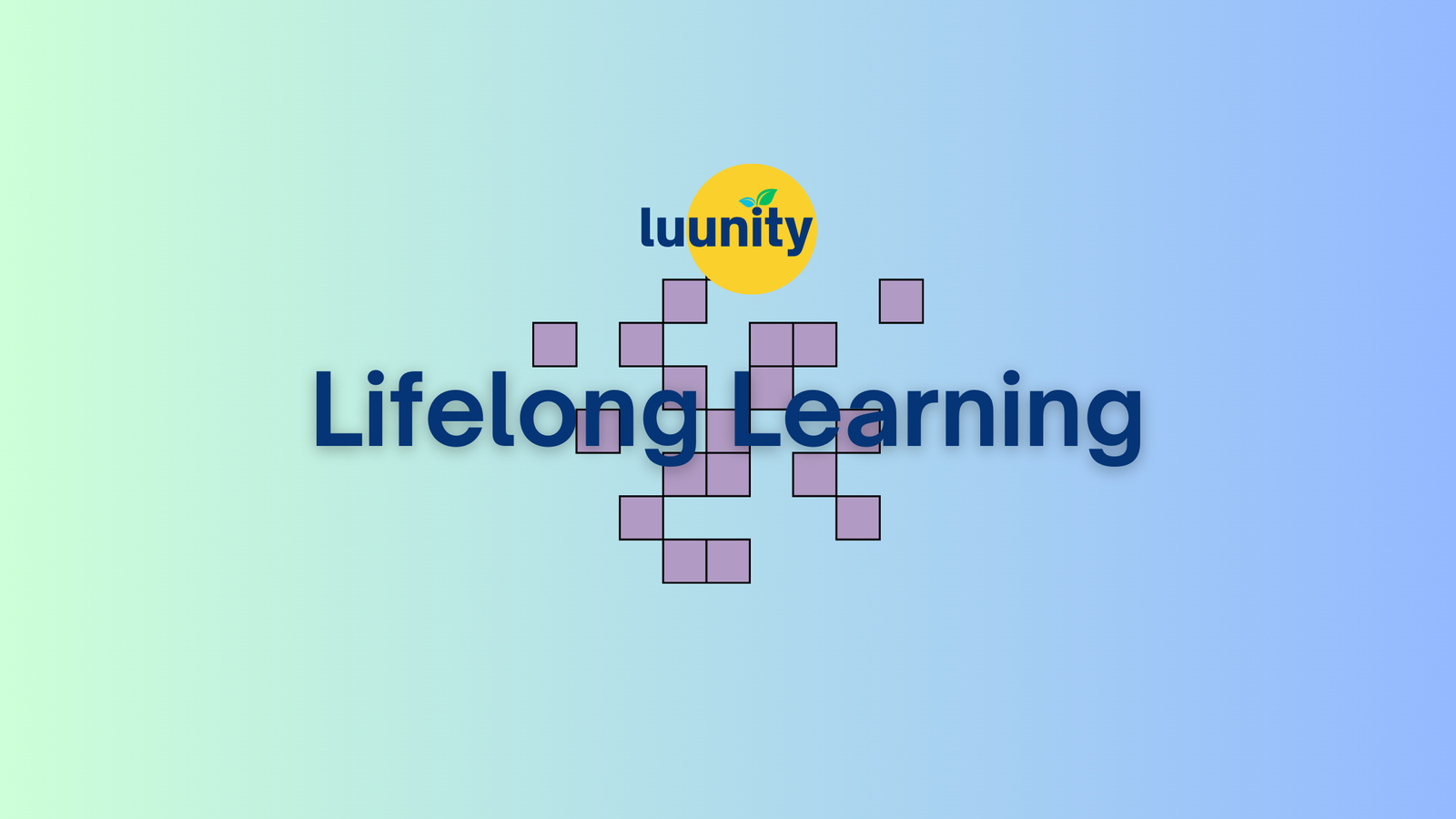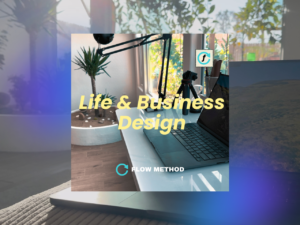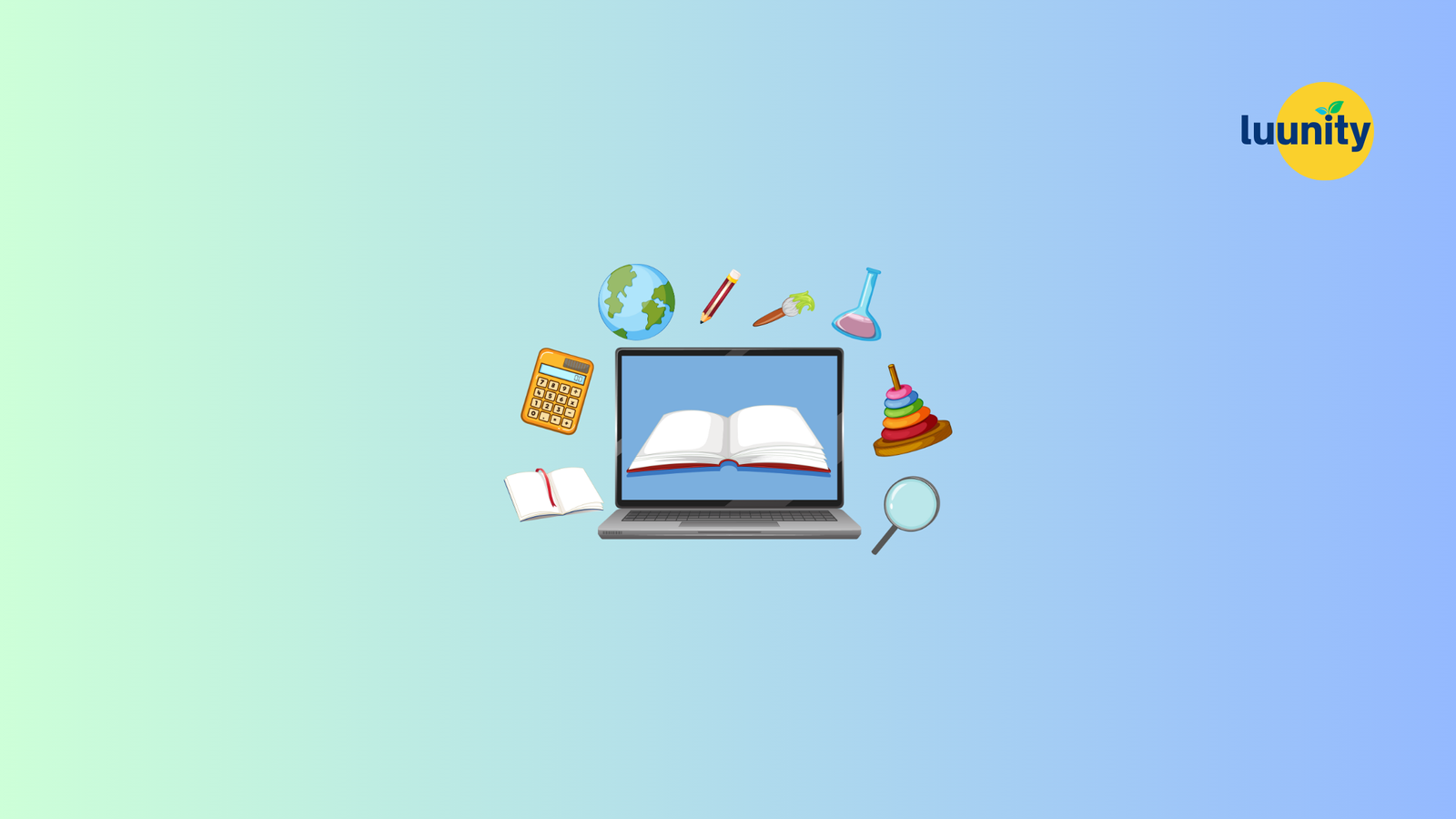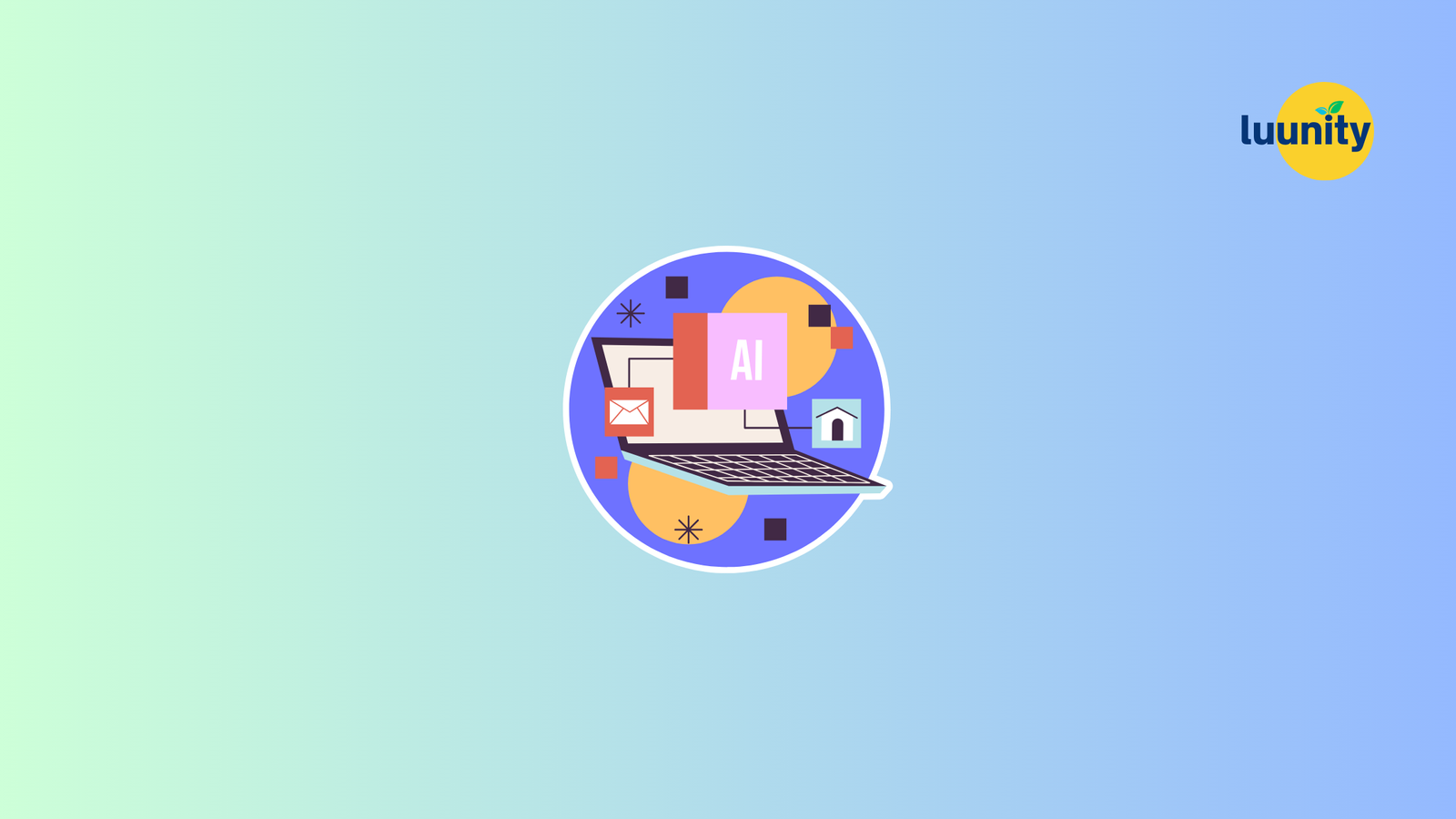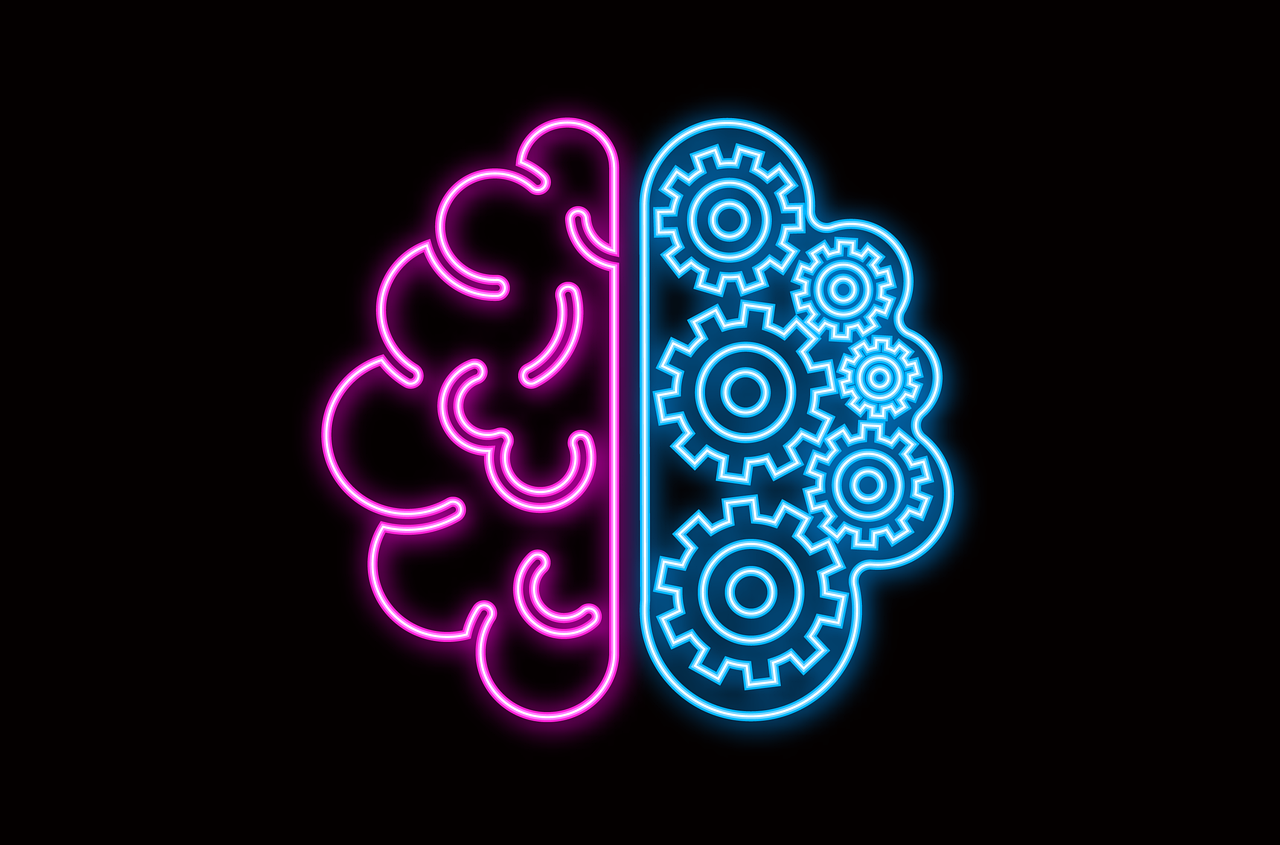Lifelong Learning

A lifelong learner is someone who is always curious and eager to grow, no matter their age or stage in life.
They embrace new experiences, seek out knowledge, and adapt to changes with an open mind. Lifelong learners are self-motivated and resilient, always striving to improve themselves and achieve their goals. They understand that learning doesn’t stop at school—it’s a journey that continues throughout life, enriching both their personal and professional worlds. Whether it’s picking up a new hobby, advancing their career, or simply staying informed, lifelong learners see every day as an opportunity to learn something new and become a better version of themselves.
Traits of the Lifelong Learner

Curious Mind
Open-Mindedness
Self-Motivation
Adaptability
Reflective Thinking
Resilience
Collaborative Spirit
Goal-Oriented
Overview of Lifelong Learning
Lifelong learning is a continuous, self-directed journey of acquiring knowledge, skills, and experiences throughout an individual’s life.
Unlike traditional education, which is often confined to specific stages like school or college, lifelong learning is an ongoing process that persists well beyond formal education. It’s driven by a voluntary and self-motivated desire to grow, develop, and improve in both personal and professional aspects of life.
This type of learning isn’t limited to classrooms or structured courses.
It encompasses a wide range of activities, from taking up a new hobby, learning a language, or mastering a musical instrument, to staying updated with the latest trends in your field, pursuing professional certifications, or exploring new areas of interest through reading or online courses. The essence of lifelong learning lies in its flexibility and adaptability, allowing individuals to tailor their learning experiences to their unique needs, interests, and goals.
Lifelong learners approach every experience as an opportunity to learn and grow.
They are curious, open-minded, and proactive in seeking out new challenges and opportunities. Whether through formal education, informal self-directed study, or non-formal community-based learning, lifelong learning fosters a mindset of continuous improvement, ensuring that individuals remain intellectually engaged and personally fulfilled throughout their lives.
The Importance of Lifelong Learning
As technology advances and the global landscape evolves, the knowledge and skills required to thrive in both personal and professional arenas are constantly shifting. Lifelong learning equips individuals with the tools they need to adapt to these changes, ensuring they remain relevant, competitive, and capable of meeting new challenges head-on.
Adapting to Technological Change
The pace of technological advancement is unprecedented, transforming industries, job markets, and everyday life at an astonishing rate. Lifelong learning enables individuals to keep up with these changes by continually updating their technical skills and knowledge. Whether it’s learning to use new software, understanding emerging technologies like artificial intelligence, or staying informed about digital trends, lifelong learners are better prepared to navigate and thrive in a tech-driven world.
Staying Competitive in the Job Market
The modern job market is highly dynamic, with industries constantly evolving and new roles emerging as others become obsolete. To remain competitive, professionals must be proactive in updating their skills and qualifications. Lifelong learning provides a pathway for career advancement, offering opportunities to gain new certifications, expand expertise, and stay ahead of industry trends. Employers increasingly value individuals who demonstrate a commitment to continuous learning, as it reflects adaptability, resilience, and a forward-thinking mindset.
Meeting Societal Expectations
Societal expectations are also shifting, with a growing emphasis on lifelong learning as a key component of personal and professional development.
Today, there is a recognition that education doesn’t end with a diploma or degree; rather, it’s a lifelong pursuit that contributes to a well-rounded, informed, and engaged citizenry. Engaging in lifelong learning helps individuals stay informed about global issues, participate more fully in their communities, and make meaningful contributions to society.
Promoting Personal Fulfillment
Beyond professional success, lifelong learning is a pathway to personal fulfillment.
It allows individuals to pursue their passions, explore new interests, and achieve personal goals. Whether it’s picking up a new hobby, traveling to new places, or learning about different cultures, lifelong learning enriches life by adding depth and variety to everyday experiences. It fosters intellectual curiosity, creativity, and a sense of accomplishment, all of which contribute to overall well-being and life satisfaction.
Enhancing Cognitive Health
Engaging in continuous learning has significant benefits for cognitive health, particularly as we age.
Research has shown that staying mentally active through learning new skills, solving problems, and challenging the brain helps maintain cognitive function and may even reduce the risk of cognitive decline. Lifelong learning keeps the mind sharp, improves memory, and enhances problem-solving abilities, contributing to a healthier, more vibrant life in later years.
Personal Growth
Continuous Self-Improvement
Engaging in lifelong learning encourages a habit of continuous self-improvement, which is essential for personal growth.
By consistently seeking new knowledge and skills, you become more aware of your strengths and areas for development. This self-awareness is key to personal transformation, as it allows you to set meaningful goals and take deliberate actions to achieve them.
Enhanced Self-Awareness
Lifelong learning deepens your understanding of who you are, your values, and your motivations. This heightened self-awareness helps you make informed decisions in both your personal and professional life, aligning your actions with your true self.
Boosted Confidence
As you acquire new skills and knowledge, you build confidence in your abilities. This increased confidence can lead to greater success in various aspects of life, from tackling new challenges to pursuing ambitious goals. When you know you have the tools to succeed, you’re more likely to take on opportunities that may have seemed out of reach before.
Sense of Accomplishment
Achieving learning milestones, whether they are big or small, provides a significant sense of accomplishment. This sense of achievement fuels motivation and inspires you to continue learning, setting off a positive cycle of growth and success.
Professional Development
Staying Updated with Trends and Skills
Lifelong learning ensures that you stay up-to-date with the latest trends, tools, and methodologies in your field.
By continuously upgrading your skills, you maintain your relevance and value in the job market.
Competitiveness in the Job Market
Employers are increasingly looking for individuals who demonstrate a commitment to ongoing learning and adaptability. By staying current with industry developments and acquiring new competencies, you position yourself as a valuable asset to any organization. This competitiveness can lead to better job opportunities, promotions, and the ability to command higher salaries.
Career Advancement
Lifelong learning opens doors to new career opportunities by equipping you with the skills needed for advancement.
Whether you’re looking to move up the corporate ladder, switch industries, or start your own business, continuous learning provides the foundation for success. It enables you to take on new roles with confidence and excel in your career.
Adaptation to Industry Changes
Industries often undergo significant shifts due to technological advancements, economic changes, or regulatory updates. Lifelong learning helps you adapt to these changes, ensuring that you remain effective and relevant in your profession. This adaptability not only safeguards your career but also positions you as a forward-thinking professional who can thrive in dynamic environments.
Adaptability
Navigating Technological Changes
Technology is advancing at an unprecedented rate, and staying informed about these changes is crucial for both personal and professional success. Lifelong learning equips you with the knowledge and skills needed to embrace new technologies, whether it’s mastering new software, understanding digital trends, or leveraging artificial intelligence in your work.
Adapting to Industry Standards
Industry standards and best practices are continually evolving.
Lifelong learning ensures that you remain compliant and proficient in your field by keeping you informed about new regulations, standards, and protocols. This adaptability makes you more resilient in the face of industry shifts, enabling you to maintain high standards of performance.
Coping with Societal Shifts
Societal changes, such as shifts in cultural norms, economic conditions, and global events, can impact various aspects of life. Lifelong learning helps you develop the flexibility and critical thinking needed to navigate these changes effectively. By understanding and adapting to new societal contexts, you can make informed decisions and contribute positively to your community.
Building Resilience
Adaptability is a key component of resilience, which is the ability to bounce back from challenges and setbacks.
Lifelong learning fosters resilience by equipping you with the skills and mindset needed to overcome obstacles. Whether it’s recovering from a career setback, adapting to a new work environment, or navigating personal challenges, a commitment to learning strengthens your capacity to thrive in the face of adversity.
Social Connections
Building Networks
Lifelong learning often involves engaging with others, whether through formal education, professional development courses, or online communities. These interactions provide valuable opportunities to expand your network, connecting you with individuals who share similar interests, goals, or professions. Building a strong network can open doors to new opportunities, collaborations, and support systems that enhance both your personal and professional life.
Forming Friendships
Learning in group settings or participating in learning communities can lead to meaningful friendships. Shared learning experiences create a sense of camaraderie and trust, fostering deeper connections with others. These friendships not only provide emotional support but also contribute to your overall well-being and happiness.
Establishing Professional Relationships
Engaging in professional development activities, such as attending conferences, joining industry groups, or participating in workshops, allows you to establish valuable professional relationships. These connections can lead to mentorship opportunities, partnerships, and collaborations that accelerate your career growth. Professional relationships built through lifelong learning are often based on mutual respect and shared goals, making them particularly impactful.
Learning from Others
Social learning, where you gain knowledge and skills through interaction with others, is a powerful component of lifelong learning. By engaging with diverse perspectives and experiences, you broaden your understanding and gain insights that you might not have encountered on your own. Whether through peer discussions, group projects, or mentorship, learning from others enriches your educational experience and contributes to your personal and professional development.
Stay Curious
Curiosity is the engine that drives lifelong learning.
By exploring a wide range of topics, you open yourself to new ideas, cultures, and perspectives that can significantly enrich your understanding of the world. This exploration keeps your mind sharp and engaged, fostering creativity as you discover connections between different fields of knowledge. Whether you’re diving into a new hobby, studying a different discipline, or following your interests, staying curious makes learning a joyful and ongoing journey. Platforms like Luunity offer courses that can guide your exploration, helping you delve into subjects that spark your curiosity.
A questioning mindset is equally crucial for deep learning. Instead of accepting information at face value, cultivate a habit of asking why things are the way they are, how they work, and what might happen if things were different. This approach not only deepens your understanding but also enhances your problem-solving skills. With a questioning mindset, learning becomes an active pursuit, where you constantly seek to expand your knowledge and refine your understanding.
Set Learning Goals
Setting clear learning goals is essential for maintaining focus and motivation.
Goals give your learning purpose, helping you prioritize your time and efforts. Whether your aim is to master a new language, develop a specific skill, or gain expertise in a new field, well-defined objectives keep you on track and provide a sense of direction. Achievable goals also allow you to measure your progress, ensuring that your learning journey is both productive and rewarding.
Tracking your progress is crucial to maintaining momentum. Regularly reviewing your achievements helps reinforce what you’ve learned and keeps you motivated to continue. It also allows you to identify areas where you may need to adjust your approach, ensuring that you continue moving forward effectively. Turning your learning from a series of isolated experiences into a coherent journey of growth and development can be immensely fulfilling. Tools like the eBooks and Interactive Flip-books on Flobase can offer additional insights and keep you on track with your goals.
Leverage Resources
Whether you prefer to dive deep into a subject through reading, engage with interactive courses, or absorb information on the go via podcasts, having access to multiple resources enhances your ability to learn effectively. Exploring different formats and mediums keeps your learning experience fresh and engaging, helping you avoid burnout and maintain your motivation. Platforms like Flobase offer a wealth of books and eBooks, while AudioOcean provides audiobooks and audio courses that fit seamlessly into your busy life.
Reflection is a vital part of the learning process. By regularly taking the time to review and reflect on what you’ve learned, you consolidate your knowledge and deepen your understanding. Reflection allows you to identify key insights and ensure that you’re retaining the most important information. It also helps you connect what you’ve learned with your personal and professional goals, making your learning more meaningful and relevant.
Apply Learning to Life and Career
The true value of learning lies in its application.
Whether you’re looking to improve your work performance, solve real-world problems, or make better decisions in your personal life, applying what you’ve learned is where the impact of education becomes tangible. Integrating new knowledge and skills into your daily life ensures that your learning is not just theoretical but also practical and transformative.
Learning is greatly enhanced when you share it with others. By joining learning communities, whether online or in person, you gain access to a wealth of knowledge and perspectives that can enrich your understanding. These communities provide opportunities to discuss new ideas, ask questions, and receive support from others who share your interests. Being part of a learning community also helps you stay motivated, as you are surrounded by like-minded individuals who inspire and challenge you to keep growing. Platforms like Luunity offer spaces where you can connect with others who are on similar learning journeys.
Embrace Failure
Failure is an inevitable part of the learning process, but it’s also one of the most valuable. Every setback is an opportunity to learn and grow. By analyzing what went wrong and how you can improve, you turn failure into a stepping stone toward success. Embracing failure with a positive mindset allows you to develop resilience and perseverance, qualities that are essential for continuous learning and personal growth.
Obstacles are not roadblocks but opportunities for growth. By approaching challenges with a growth mindset, you can overcome difficulties and continue to develop your skills and knowledge. Viewing challenges as opportunities to learn and improve not only makes you more resilient but also encourages continuous innovation and improvement. This mindset will help you tackle increasingly complex problems with confidence and optimism.
Formal Learning
Formal learning refers to structured education provided by institutions such as schools, colleges, universities, or specialized training centers.
This type of learning follows a set curriculum and is designed to lead to recognized qualifications, such as diplomas, degrees, or certifications. Formal learning is often pursued to achieve specific career goals or to gain specialized knowledge in a particular field. Examples include earning a bachelor’s degree in engineering, obtaining a certification in project management, or completing a structured course in digital marketing. The outcomes of formal learning are typically standardized and validated through assessments, ensuring that learners meet specific educational or professional standards.
Informal Learning
Informal learning is the process of acquiring knowledge and skills through everyday experiences, activities, and interactions.
Unlike formal education, informal learning does not follow a structured curriculum or lead to formal qualifications. Instead, it is self-directed and driven by personal interests and curiosity. This type of learning can occur in a variety of settings, such as reading books, exploring new hobbies, traveling, engaging in discussions with peers, or conducting self-study on topics of interest. Informal learning is highly flexible and often spontaneous, allowing individuals to continuously grow and adapt their knowledge and skills in response to their environment and life experiences.
Non-Formal Learning
Non-formal learning encompasses organized educational activities that take place outside of the formal education system but still have a structured approach.
These activities are often designed to meet specific learning objectives and may be offered through workshops, seminars, community education programs, or online courses. While non-formal learning does not typically result in formal qualifications like degrees or certifications, it provides valuable opportunities for personal and professional development. Examples include attending a weekend workshop on public speaking, participating in a community-based art class, or joining a seminar on financial literacy. Non-formal learning is particularly beneficial for those looking to enhance specific skills or knowledge areas without committing to a long-term formal education program.
Lifelong Learning in the Digital Age
The digital age has revolutionized the way we access, engage with, and pursue lifelong learning.
With the advent of the internet, mobile devices, and a vast array of online platforms, learning is no longer confined to traditional classrooms or scheduled sessions. Today, knowledge is at our fingertips, available anytime and anywhere, making it easier than ever to integrate continuous learning into our daily lives.
Online Learning Platforms
One of the most significant advancements in the digital age is the proliferation of online learning platforms. Websites and apps such as Luunity offer a wide range of courses across numerous disciplines, from coding and digital marketing to creative writing and personal development. These platforms provide flexibility, allowing learners to study at their own pace, choose topics that interest them, and access high-quality content from experts around the world. Whether you’re looking to gain a new skill, advance in your career, or explore a personal interest, online learning platforms make it possible to achieve your goals without the constraints of location or time.
Microlearning
In a world where attention spans are shorter and schedules are busier, microlearning has emerged as a powerful tool for lifelong learning. Microlearning breaks down complex topics into bite-sized, manageable chunks that can be consumed in minutes rather than hours. This approach is perfect for those who want to learn on the go, during short breaks, or in between daily tasks. Microlearning modules, which might include short videos, quizzes, infographics, or brief articles, allow learners to absorb information quickly and efficiently. This method not only fits seamlessly into a busy lifestyle but also helps reinforce learning through repetition and focused content.
Open Educational Resources (OER)
The digital age has also democratized education through Open Educational Resources (OER). These are freely accessible, openly licensed educational materials available online for anyone to use. OERs include textbooks, course materials, lesson plans, videos, and even full courses, making high-quality education accessible to a global audience. Platforms like Flobase, which offer eBooks and interactive flipbooks, provide a wealth of knowledge that can be accessed and utilized for personal or professional growth. The availability of OERs empowers individuals to take control of their education, allowing them to learn at their own pace and tailor their studies to their specific needs and interests.
Podcasts and Audio Learning
Podcasts and other forms of audio learning have become increasingly popular in the digital age, offering a convenient way to consume content while multitasking. Whether you’re commuting, exercising, or doing household chores, podcasts allow you to engage with educational content on the go. Platforms like AudioOcean provide a diverse range of topics, from history and science to business and self-improvement, catering to the varied interests of lifelong learners. Audio learning is particularly effective for auditory learners and those who prefer to absorb information through listening rather than reading.
Interactive and Social Learning
The digital age has also facilitated interactive and social learning, where learners can engage with content in dynamic ways and collaborate with others from around the globe. Online forums, discussion groups, and social media platforms provide spaces where learners can share ideas, ask questions, and gain insights from peers and experts alike. This collaborative approach not only enhances the learning experience but also fosters a sense of community among lifelong learners. Platforms like Luunity encourage this type of social learning by integrating discussion boards and community features into their courses, enabling learners to connect, share, and grow together.
Adaptive Learning Technologies
Adaptive learning technologies are another innovation of the digital age, offering personalized learning experiences tailored to individual needs and preferences. These technologies use algorithms and data analytics to assess a learner’s progress and adjust the content accordingly. Whether it’s through personalized quizzes, tailored study plans, or interactive simulations, adaptive learning ensures that each learner receives the support and resources they need to succeed. This approach not only makes learning more effective but also keeps learners engaged by challenging them at the right level and pace.
Virtual Reality and Augmented Reality
Virtual Reality (VR) and Augmented Reality (AR) are pushing the boundaries of what’s possible in lifelong learning. These immersive technologies allow learners to experience content in entirely new ways, making abstract concepts more concrete and providing hands-on learning experiences in a virtual environment. For example, VR can simulate real-world scenarios, such as medical procedures or architectural designs, allowing learners to practice and refine their skills in a safe and controlled setting. AR, on the other hand, can overlay digital information onto the physical world, enhancing learning with interactive elements that deepen understanding and retention.
Lifelong Learning Communities
The digital age has given rise to global learning communities, where individuals with shared interests can connect, collaborate, and support each other’s learning journeys. Whether through online forums, social media groups, or specialized learning platforms, these communities provide a rich environment for discussion, feedback, and mutual encouragement. Being part of a learning community can significantly enhance motivation and accountability, helping learners stay committed to their goals and benefit from the collective knowledge and experience of the group.
In summary, the digital age offers unparalleled opportunities for lifelong learning. With the vast array of tools, resources, and platforms available, individuals can continue to grow and develop throughout their lives, adapting to new challenges and embracing the endless possibilities that come with continuous education. Whether through structured online courses, casual microlearning sessions, or immersive VR experiences, the digital age has made learning more accessible, flexible, and engaging than ever before.
The Ultimate Guide to Learning Styles: Tailoring Education to You
- Dive into the world of learning styles with this comprehensive guide that helps you understand and apply different learning techniques tailored to individual needs.
Flow and Grow: The Path to Self Mastery and Personal Growth
- This eBook offers insights and strategies for achieving personal growth and mastering self-improvement techniques to lead a more fulfilling life.
Good Credit: Establishing and Repairing Your Credit Score
- Learn how to build, maintain, and repair your credit score with practical advice and strategies that can help you secure better financial opportunities.
Mind-Body Connection: Holistic Harmony and Optimal Wellness Within
- Explore the deep connection between the mind and body, and discover holistic approaches to achieve overall wellness and harmony.
The Legacy Builders: Building Sustainable Businesses that Make an Impact
- A must-read for entrepreneurs looking to create sustainable businesses that not only succeed but also make a positive impact on society.
Digital Detox: Unplugging for Mental Clarity and Inner Peace
- Learn how to disconnect from the digital world to reclaim your mental clarity and achieve a sense of inner peace.
The Little Book on Hydration: The People’s Guide To Health, Vitality & Flow
- Understand the importance of hydration for overall health and vitality, with tips on how to maintain optimal hydration levels daily.
Winning Mindset: Keeping A Positive and Hopeful Mind
- This eBook provides techniques for developing and maintaining a winning mindset that helps you stay positive and hopeful in the face of challenges.
Sustainable Agriculture: Principles of Sustainable Agriculture for a Hungry Planet
- Discover the principles of sustainable agriculture and how they can be applied to address the growing challenges of food production in a changing world.
The Art of Stillness: How Boredom Can Lead to Your Best Self
- Explore the benefits of stillness and boredom as powerful tools for self-discovery, creativity, and personal growth.
These eBooks provide valuable knowledge and insights across various fields, making them ideal resources for anyone interested in personal development, sustainability, and achieving success in both personal and professional life.
Other Learning Styles
Courses for Lifelong Learning


Articles about Lifelong Learning
Learning Paths for Lifelong Learning
